

Julian Beck
Born: May 31, 1925
Died: September 14, 1985
in New York City, New York, USA
Died: September 14, 1985
in New York City, New York, USA
Movies for Julian Beck...
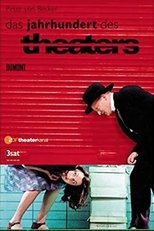
Title: Das Jahrhundert des Theaters
Character: Self
Released: April 6, 2002
Type: TV
"The Century of the Theater" - From the "birth of the director" to the "heroes of modernity" - an overview of the world of theater - illuminates the interaction with the history of the past hundred years is also shown.

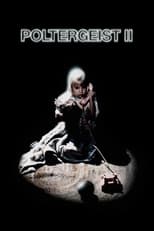
Title: Poltergeist II: The Other Side
Character: Kane
Released: May 23, 1986
Type: Movie
The Freeling family move in with Diane's mother in an effort to escape the trauma and aftermath of Carol Anne's abduction by the Beast. But the Beast is not to be put off so easily and appears in a ghostly apparition as the Reverend Kane, a religeous zealot responsible for the deaths of his many followers. His goal is simple - he wants the angelic Carol Anne.

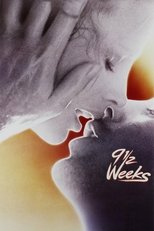
Title: Nine 1/2 Weeks
Character: Dinner Guest
Released: February 9, 1986
Type: Movie
An erotic story about a woman, the assistant of an art gallery, who gets involved in an impersonal affair with a man. She barely knows about his life, only about the sex games they play, so the relationship begins to get complicated.


Title: All Star Video
Character: Self
Released: January 21, 1985
Type: Movie
A compilation of avant-garde artwork and talent of the mid to late 20th century hosted by Ryuichi Sakamoto.

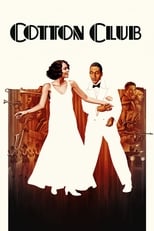
Title: The Cotton Club
Character: Sol Weinstein
Released: December 14, 1984
Type: Movie
Harlem's legendary Cotton Club becomes a hotbed of passion and violence as the lives and loves of entertainers and gangsters collide.

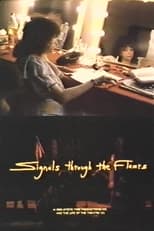
Title: Signals Through the Flames
Character: Himself
Released: October 1, 1983
Type: Movie
Signals Through the Flames is at once a history and a celebration of the Living Theatre. Founded in the late 1940s by husband-and-wife performers Julian Beck and Judith Malina, the Living Theatre was for many years the predominent American outlet for the avant-garde movement. There were occasional self-imposed exiles to Europe in the 1950s and 1960s, but the group returned full-force during the Aquarius Age to entertain a new generation of theatregoers.

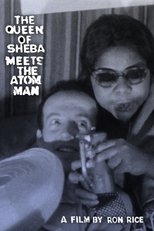
Title: The Queen of Sheba Meets the Atom Man
Released: August 1, 1981
Type: Movie
“New York plays itself, as Taylor Mead and Winifred Bryan regale in pas de deux among the trashcans and the towers. The Studiedly Goofy and the Monumentally Grand are joined in masterly pas de don’t [...] The awed couple do battle with the status quo and teach the world to dance on the head of a bin. Rice detects real dignity in Bryan and amazing grace in Mead as they essay solitary promenades through the parks, subways and streets of a wintery New York landscape. Photographed and directed by Ron Rice, edited and scored by Taylor Mead.” –Edward Leffingwell


Title: Notes for Jerome
Character: Self
Released: July 3, 1978
Type: Movie
During the summer of 1966 Jonas Mekas spent two months in Cassis, as a guest of Jerome Hill. Mekas visited him briefly again in 1967, with P. Adams Sitney. The footage of this film comes from those two visits. Later, after Jerome died, Mekas visited his Cassis home in 1974. Footage of that visit constitutes the epilogue of the film. Other people appear in the film, all friends of Jerome.

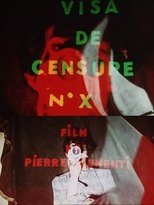
Title: Visa de censure n° X
Character: (archive footage) (uncredited)
Released: July 2, 1976
Type: Movie
Best known for his roles in Belle de jour, Sweet Movie, and many more, Pierre Clementi was also the architect behind a transgressive, high-minded, and disorienting cinema. Like an acid-soaked freefall, Visa de censure n° X is a rush of nudity and color from one of France’s most seductively watchable actors, set to an album's worth of psychedelic prog rock (performed by the Delired Cameleon Family, a group featuring members of French band Clearlight).

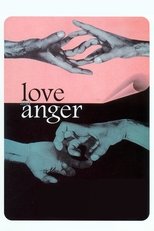
Title: Love and Anger
Character: Dying Man (segment "Agonia")
Released: May 29, 1969
Type: Movie
Five short stories with contemporary settings. In New York, people are indifferent to derelicts sleeping on sidewalks, to a woman's assault in front of an apartment building, and to a couple injured in a car crash. A man, stripped of his identity, dies in bed with actors expressing his agony. A cheerful, innocent young man walking a city street in a time of war pays a price for this innocence. A couple talks about cinema while it watches another couple talk of love and truth on the eve of one character's return to Cuba. Striking students take over a university classroom; an argument follows about revolution or incremental change.

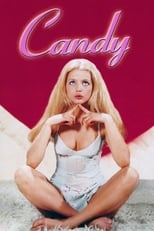
Title: Candy
Character: Hippie (uncredited)
Released: December 17, 1968
Type: Movie
A high school girl encounters a variety of kookie characters and humorous sexual situations while searching for the meaning of life.


Title: Emergency: The Living Theatre
Character: Self
Released: September 9, 1968
Type: Movie
The husband-and-wife acting team of Julian Beck and Judith Malina heads the cast of the "theatre on film" presentation “Emergency”. Screened at the First International Festival of Women’s Films, 1972.




Title: If the Unconscious Revolts
Released: November 15, 1967
Type: Movie
In this film, as in all my previous ones, there is a direct connection between inner urges and cinematic rendering. I tried to visualize my present aspiration to recover, through the various ways taught by one’s experience, the easiness, directness and ripeness proper to children’s relationships and affective life. This film is maybe a track of this path backwards. – A. L.


Title: Oedipus Rex
Character: Tiresia
Released: September 7, 1967
Type: Movie
In pre-war Italy, a young couple have a baby boy. The father, however, is jealous of his son - and the scene moves to antiquity, where the baby is taken into the desert to be killed. He is rescued, given the name Edipo (Oedipus), and brought up by the King and Queen of Corinth as their son. One day an oracle informs Edipo that he is destined to kill his father and marry his mother. Horrified, he flees Corinth and his supposed parents - only to get into a fight and kill an older man on the road…


Title: J. & J. & Co.
Released: January 1, 1967
Type: Movie
Images of the life of the Living, the material that composes it was originally shot for the film: "The Unconscious Rebels". The shots were re-edited following the rehearsals of Mysteries and Antigone.

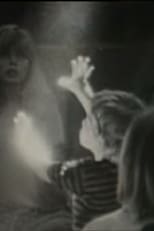
Title: The Lost Paths
Character: Himself
Released: January 1, 1967
Type: Movie
Series of three short 'Pop Films' directed between 1966 - 67 for French television by Philippe Garrel. Includes footage of The Living Theater in rehearsal, interviews with Julian Beck and Judith Malina, Donovan in concert and The Who in the studio recording 'Pictures of Lily'. Re-broadcast on INA in 1984.


Title: Amore, amore
Released: January 1, 1966
Type: Movie
The title Amore amore ( Love Love) defines the primary emotive motor of the film and constitutes the filter through which are selected the materials used - people, things, signs - and determines a good portion of the associations though which the sequences unwind.


Title: Living & Glorious
Character: Self
Released: January 1, 1965
Type: Movie
Leonardi's film about the Living Theatre is less concerned with a straight documentary presentation of the exile theatre group from New York, but rather is concerned with the specific atmospheric factor which is indicated by their name, and which constitutes the highly suggestive effect of their playing. Cutting, for Leonardi, is the most decisive aesthetic device. The result is a wonderfully composed furioso of pictures. The hand-held camera catches rehearsals, conversations without sound, bits of theatre and daily life actions (which, for Living Theatre people, is very often intermixed).


Title: Narcissus
Released: April 25, 1958
Type: Movie
A film poem, a re-telling of the Greek myth in modern terms. In the traditional pool the water has become muddy and Narcissus finds that mirrors are more rewarding for the study of his changing reflections. There are three mirrors, each reflecting a dramatic study in self-love. The first, love that deserves the adoration of the opposite sex; the second, homosexual love that investigates itself and its own sex; the third, love that insures one a place in the present and history.
